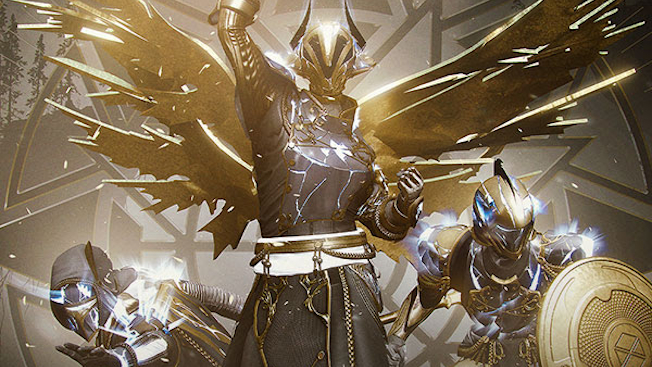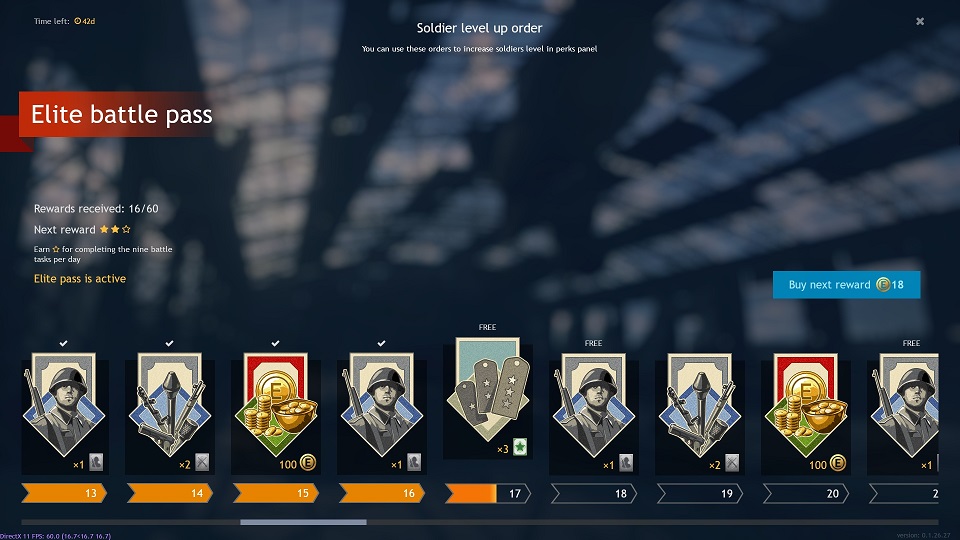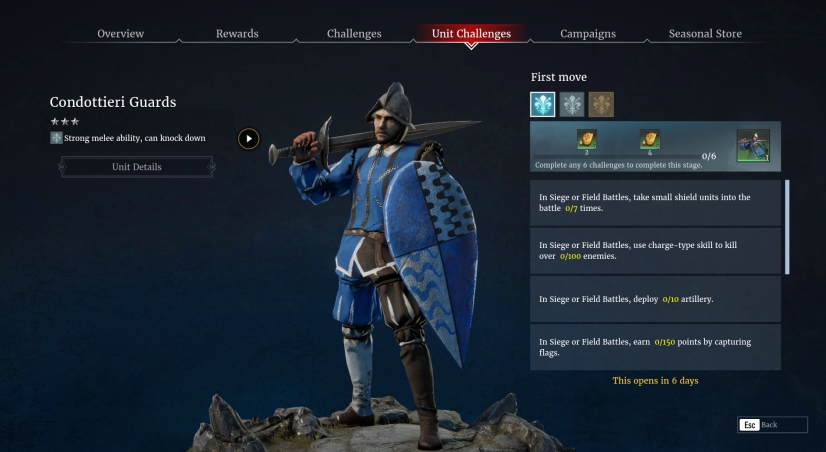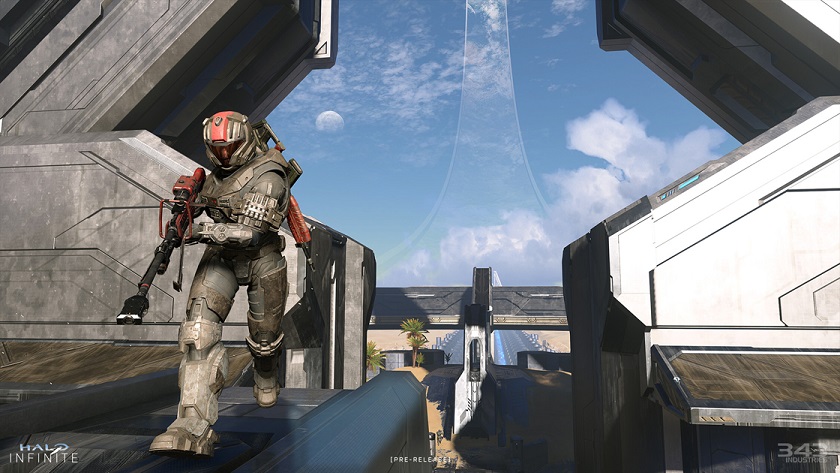How I'm Losing The Battle Against The FOMO Blues
Fear of Missing Out, or “FOMO,” is a topic that's being brought up more frequently in gaming these days. In short, it's the need people feel to complete a given task or participate in an event that is available for a limited time in a game, usually for a reward that will only be offered during that limited time. An example is having the ability to unlock a cosmetic outfit, but only if you participate in an event and complete some task – like winning five battles or gaining 10 levels – over the course of a week, a month, or even the full season of a battle pass.
The reasons why these kinds of things exist are arguably of greater benefit to the developer of a game than its players. Any kind of “Act now while supplies last!” shoutout is the sort of thing that draws headlines for its often-flashy reward, and the limited-time nature of the reward itself compels people to take advantage of the offer – and perhaps spend some money – before it's no longer available.
The downside for players is analogous to the upside for developers. If you don't play during a certain period of time, and fulfill certain tasks to get the reward, you'll “miss out” on the cool shiny thing. So you play, even if you're not in the mood, for “fear of” missing out on something that might never be offered again. And thus you have FOMO.
While many in-game rewards aren't linked to a limited time frame – think your typical loot from open-world activities or instances – nearly every MMO these days offers some kind of FOMO-esque rewards. Battle passes are the most obvious cases, offering 100 or so levels' worth of loot, but only during the time the pass is active. That's usually a pretty long time, in the two to three months' range for most games, but with the high number of levels and the best rewards usually locked behind the highest tiers (and a paywall, but that's not the point here), it can seem like an insurmountable climb to complete all the necessary objectives, even across 60 days or longer.
Battle passes are a fairly recent invention, however. Games have relied on FOMO for far longer. Think of any holiday event that lets you nab a Santa hat (for Christmas), pumpkin head (for Halloween), or swimsuit (for summer), as long as you complete various tasks over three weeks or so. Other games simply have weekly or monthly challenges to complete, that offer some kind of reward for playing during that time.
On a recent F2P Cast, Magicman brought up how much he's come to dislike daily quests. Even they could be construed as a kind of FOMO, since they require you to perform a task over a limited time period and reward you for doing so. That reward tends to be on the low side, but I've known people who still consider it their duty to complete their dailies every day. Even I've occasionally seen that I'm close to completing a daily (“47/50 Monsters Slain”) and will keep playing past when I really want to just to finish up that simple task. It feels bad and manipulative, like I'm doing what the game wants me to rather than what I want to.
I can still see the need for long-term tasks, over a month or season or whatever, to give players something to strive for. Times have changes, though, and I wonder how many people these days have a “main” game that they play nearly to the exclusion of all others – the kind of game that they can play long enough to reach the top levels of rewards. Five or 10 years ago, that might have been a reasonable expectation, but with so many games now, both multiplayer-with-a-battle-pass and single-player, it's harder to find the time to dedicate yourself to one game, at least at the rate that FOMO-heavy games require. As I've come to think of it, games are “greedy”; they want all of your time, and don't care about the size of your Steam backlog or how many other games you have installed.
So is the solution to make those kinds of things shorter or more easily attainable? The issue with that is that the people who do “main” a game will get done with them, get bored with the lack of new content, and then move on, at least until the next content patch drops. Of course, developers don't want that, but maybe it's not such a bad thing. People do that with MMORPGs all the time – World of Warcraft players are famous for it – as well as with other games like Path of Exile, whose player numbers show a clear trend of boom-and-bust around update cycles.
But the alternative isn't pleasant either. Taking a personal example. I played the heck out of Conqueror's Blade's Season VII to acquire all three of the new units, and some of their additional perks, and a high level of the battle pass, which took me nearly the whole season, playing about 10-15 hours per week. The result? I felt burned out and only lasted a week in Season VIII before taking a (still-ongoing) break.
Is that helping the developer? Would it have been better if I'd felt like I only had to play roughly half the time and therefore still want to play in future seasons? It seems to me like a focus on longer-term user retention would be better than trying to squeeze as much time as possible out of players at every opportunity.
CB's unit-acquisition methods have their downsides – having to play specific types of battles that are only available at certain times during the week – but the dev team did make one good change recently. It used to be that, during the season a unit became available, you needed to complete, say, 8/10 tasks to unlock one step in its acquisition chain. After that season passed, you could still go back and get the unit, but you'd have to complete all 10 tasks. They changed that to require just 8/10 challenges, even if the unit's season had already passed (though you need to set your progress to that particular season).
If I was in charge, I'd take it even a step further. I'd reduce the out-of-season requirement to something lower, like 6/10 challenges, or maybe keep it at 8/10 but make the challenges easier. That way, a player who comes in later can “catch up” more easily. Honestly, I think that will be the case once seasons reach double-digits, as older units become more and more difficult to acquire without sacrificing progress on newer ones -- or spending a boatload of cash.
Other games are taking steps to mitigate FOMO. Bungie specifically called out the issue with Destiny 2, and Halo Infinite will, like Conqueror's Blade, make it possible to acquire previous seasons' content. That's a good step, but I still wonder how it will work several seasons down the line when there are so many tracks' worth of rewards to potentially unlock. As with my Conqueror's Blade suggestion, I'd like to see those tracks become easier to unlock as time passes, to make it easier to catch up.
Naturally, there will always be another solution. All games, free-to-play ones in particular, offer the chance to spend money to progress, and that's probably the route they'd like you to take if you need to catch up on older progression tracks. I don't begrudge these games for trying to make a buck, but when it's through an essentially arbitrary method, like the rate of progress along a track – which could be easier, but then you'd be less likely to pay – I'd like to see games make more of an effort to be less “greedy,” both with regards to your time and your wallet.
What do you guys think? Do you have trouble completing reward tracks and get FOMO for the rewards you miss out on? Does it make you more likely to want to play and complete things or less likely once you realize you can't keep up?
Related Articles
About the Author

Jason Winter is a veteran gaming journalist, he brings a wide range of experience to MMOBomb, including two years with Beckett Media where he served as the editor of the leading gaming magazine Massive Online Gamer. He has also written professionally for several gaming websites.
More Stories by Jason WinterRead Next

Here's the latest group of polls for you to vote on to decide what was your favorite game of the last year -- or of all time!...
You May Enjoy

Who doesn’t want a cute, but ruthless bunny on their side?

These five titles should be on the radar for any MMO fan.

The changes are intended to address player feedback.

The fourth installment introduces a “newly empowered ‘Spirit Lord Taros’, with the ability to distort space and time.




I just realized I don't care and was uninstalling games until I left only my top 3-4 such as:
- Heroes of Might and Magic 3
- Age of Empires 2
- Worms Armageddon
- Lord of the Rings Online
Everything else was gone and I was somewhat happy and relieved I no longer had to worry about not playing another 10 or 20 games, because they would usually sit on my drive and collect virtual dust.
Now I don't even miss them.
There was also a short time when I forced myself for a few days to play a couple of games on my bucket list, I racked up some 4-5 hours for 4-5 days into each, had a decent idea of the game and was ready to uninstall it knowing I gave it a honest try.